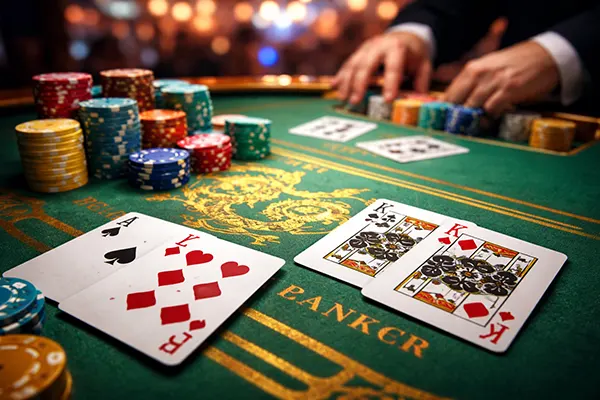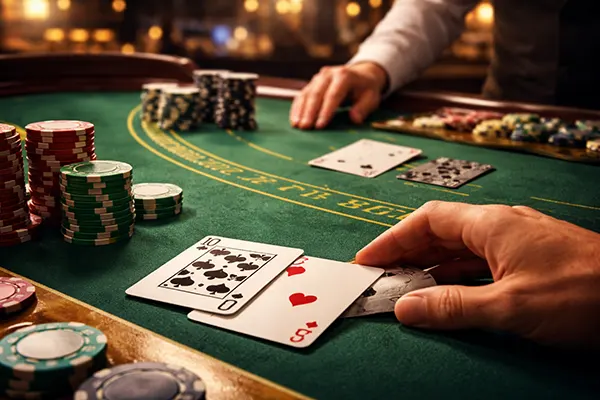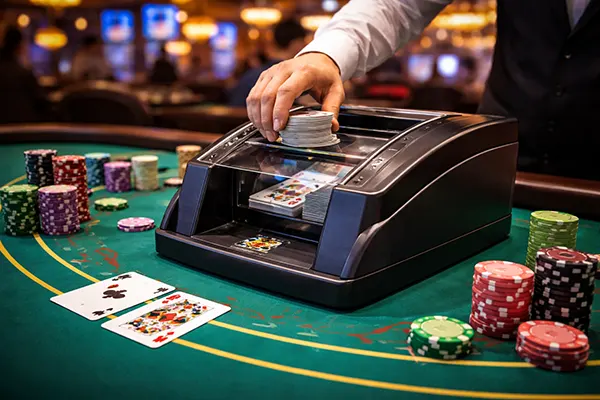
Why Poker Requires More Skills than Other Casino Games
Poker is a game that stands apart from other casino games due to the level of skill, strategy, and psychological depth it demands. Unlike games of pure chance, poker combines elements of mathematics, psychology, and decision-making, creating a unique experience that rewards skill over luck in the long term. In this article, we explore the key reasons why poker requires more skills compared to other popular casino games.
The Role of Strategy in Poker
One of the most defining characteristics of poker is its reliance on strategy. Players must carefully consider every move, assess probabilities, and anticipate their opponents’ actions. Unlike slot machines or roulette, where outcomes are purely random, poker allows players to influence the game’s outcome through strategic decisions. This element makes poker not just a game of cards but a true test of wit and foresight.
Strategy in poker is layered and evolves throughout a game. From the initial betting rounds to the final showdown, players need to adapt and recalibrate their approach. Recognising when to be aggressive, when to play conservatively, and how to exploit an opponent’s weaknesses are all part of the strategic depth that poker offers.
Furthermore, poker is unique in its reliance on incomplete information. Players are constantly making decisions based on what they know, what they observe, and what they assume about their opponents. This combination of deduction and inference is a hallmark of the game, setting it apart from games of chance.
Analytical Thinking
Poker demands a high degree of analytical thinking. Players need to evaluate the strength of their hand, consider the odds of improving their position, and decide whether to fold, call, or raise. Mastering concepts such as pot odds, expected value, and equity analysis is essential for long-term success.
Additionally, poker requires adapting strategies based on variables such as table dynamics, opponents’ tendencies, and even the stage of the game. This constant need for analysis places poker in a different league compared to simpler casino games. Players who excel in poker often possess exceptional analytical skills, allowing them to calculate probabilities on the fly and make decisions under pressure.
Psychological Skills in Poker
Another critical aspect that differentiates poker from other casino games is the psychological element. Reading opponents, managing emotions, and maintaining composure under pressure are integral to the game. This mental aspect adds layers of complexity not found in games like baccarat or blackjack, where decisions are more straightforward. The human factor in poker is what makes it endlessly fascinating and unpredictable.
The psychological challenges of poker extend beyond individual hands. A successful player must manage the mental fatigue of long sessions, avoid going on tilt after a bad beat, and stay focused despite distractions. These demands make poker as much a mental endurance test as a strategic contest.
Reading Opponents
The ability to read opponents and decipher their behaviour is a skill unique to poker. Players look for subtle cues—such as betting patterns, timing, and body language—to gauge their opponents’ intentions. Bluffing and counter-bluffing require a deep understanding of human psychology, further elevating the game’s skill requirement.
Moreover, poker involves managing one’s own emotions to avoid making impulsive decisions. The psychological discipline required to maintain focus and execute strategies effectively is a hallmark of skilled poker players. This aspect of poker often distinguishes experienced players from novices, as it directly impacts decision-making and outcomes over time.

Long-Term Skill vs. Short-Term Luck
In poker, skill consistently triumphs over luck in the long run. While a single session may hinge on fortunate hands, a skilled player will always outperform less experienced opponents over multiple games. This makes poker a game where preparation and expertise hold significant weight. Unlike games such as slots or roulette, where the house edge is insurmountable, poker allows players to directly influence their results.
The difference between short-term luck and long-term skill is most evident in tournament play. While luck may carry a player through a few hands, consistent success requires a deep understanding of the game’s nuances. This distinction is why poker is often referred to as a “mind sport,” akin to chess or bridge.
Mastery Over Time
Unlike games of chance, where outcomes are entirely dictated by randomness, poker rewards players who invest time and effort into honing their skills. From understanding advanced strategies to participating in high-stakes tournaments, the journey to mastery in poker is a testament to its depth and complexity.
Additionally, the availability of resources such as books, online tutorials, and professional coaching has created a pathway for players to continuously improve, solidifying poker’s status as a skill-based game. Many professional players attribute their success to years of practice, study, and dedication, which underscores the level of commitment required to excel.
In conclusion, poker stands out as a casino game that places skill and strategy at its core. From analytical thinking to psychological acumen and long-term mastery, poker challenges players in ways that other games do not. Whether you’re a casual player or a seasoned pro, the skills required to excel at poker highlight its unique position in the world of casino gaming.
The most popular articles
-
 Side Bets in Baccarat: A 3-Step Sanity Fil...
Side Bets in Baccarat: A 3-Step Sanity Fil...Side bets in baccarat are marketed as small add-ons, yet in practice …
-
 Blackjack Surrender Rule: When Giving Up I...
Blackjack Surrender Rule: When Giving Up I...Surrender is one of the most misunderstood options in blackjack because it …
-
 Shuffle machines and continuous shuffling ...
Shuffle machines and continuous shuffling ...Blackjack looks like a simple game of 21, but what happens before …
